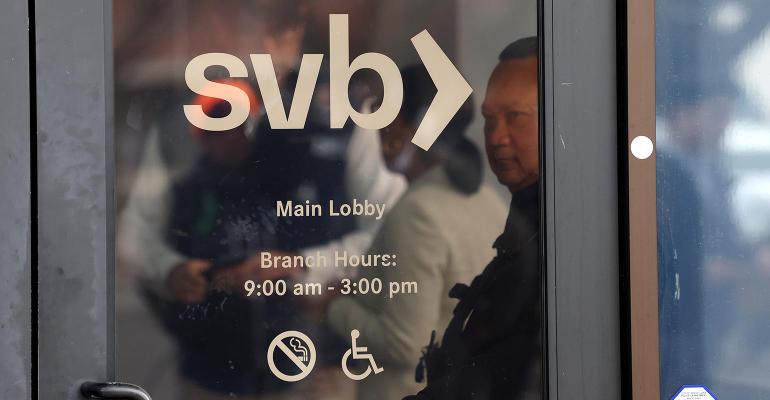As financial advisors continue to scatter in the wake of Silicon Valley Bank's collapse, SVB Wealth has filed a letter to withdraw from the Protocol for Broker Recruiting in hopes of dissuading more from leaving.
But several securities attorneys said the First Citizens Bancshares, which agreed to acquire SVB, will still face ongoing attrition.
SVB wealth advisors have until April 23 to depart the firm before it withdraws from the protocol, which was founded in 2004 as an intra-industry agreement allowing departing advisors to take certain customer information and solicit customers regardless of whether they had agreements that expressly prohibited such conduct.
In Thursday’s letter to Capital Forensics, which maintains the protocol, SVB Senior Managing Director George Shehata gave advisors 10 days before the protocol’s protections would expire.
Max Schatzow, an attorney and co-founder of RIA Lawyers, said he was surprised SVB didn’t withdraw sooner, so First Citizens could protect its new assets. SVB Private had about $14.8 billion in assets under management as of the end of 2022, according to the firm’s most recent Form ADV.
But one industry source with knowledge of the sale process, who declined to be named, said SVB Private’s assets had dwindled to less than $8 billion over the last couple weeks, due to advisors and clients leaving the firm.
Schatzow said it was hard to tell how effective withdrawing would be in dampening attrition, and that it could depend on advisors’ employment agreements and state-specific laws.
“But it didn’t hurt (First Citizens) in any way to leave the protocol. I think the calculus was easy,” he said. “It’ll help a little bit, but it’s hard to say how much it’ll help.”
The Broker Protocol offered advisors greater flexibility and less legal jeopardy when soliciting clients after leaving firms. The three initial participants included what later became Morgan Stanley Wealth Management, as well as Merrill Lynch and UBS, with J.P. Morgan Securities signing on in 2014. The protocol is currently maintained by the consulting firm J.S. Held and includes about 2,140 firms, though UBS and Morgan Stanley withdrew in 2017.
Brian Hamburger, the CEO of MarketCounsel, agreed that the move was reasonable, particularly if, in the wake of acquiring SVB’s assets and workforce, recruitment would not be a key growth strategy for the bank’s wealth unit.
“The Broker Protocol is a terrific recruiting tool for those firms who are committed to, well, recruiting or for other firms who are simply too proud to come to terms that their recruiting pipeline has all but dried up,” he said.
Despite the deadline, the number of advisors looking to leave has dropped since the initial implosion, according to Patrick Burns, a California-based attorney who counsels advisors changing firms or going independent.
Burns expected more SVB advisors might leave when First Citizens approached them with employment agreements to sign, if they haven’t done so already.
While there’s still time to close a deal before the April 23 deadline, that assumes the advisor looking to leave has already done some due diligence, according to Burns, who said starting the process now would be “a tall order.”
“It can be done, but it would be less than ideal if you’re just starting now,” he said. “Firms are reluctant too, because they want to do their due diligence and make sure they know who they’re taking on.”
A First Citizens spokesman said SVB Private was withdrawing from the protocol "as a step to help ensure" clients and data would be protected.
"It is important to us that our clients continue to receive the same high-level of service that they have always received at SVB Private," he said.
Many advisors will leave even after the withdrawal from the protocol happens, and if an advisor isn’t sure about their next move, they might be better off leaving on their own timeline, according to Burns.
“But if people are going to make a move and haven’t done so, things don’t get easier over time,” he said. “Things will become more difficult as this integration continues.”
In some cases, advisors who leave a firm after the protocol deadline will claim they joined the firm with the understanding they’d be protected by the agreement, according to Schatzow; the argument’s been successful in arbitration and litigation in some situations.
But he also believed First Citizens was looking to maximize their acquisition by incentivizing top-performing SVB advisors to stay, whether through bonuses or changes in compensation.
“You’ve got your carrots, and you’ve got your sticks,” he said. “Leaving the Broker Protocol is a stick, but they’re probably using some carrots as well."





